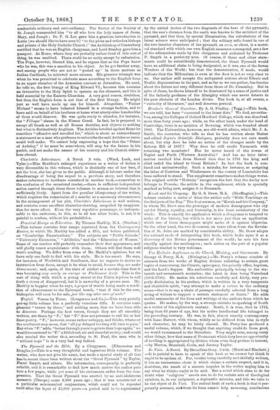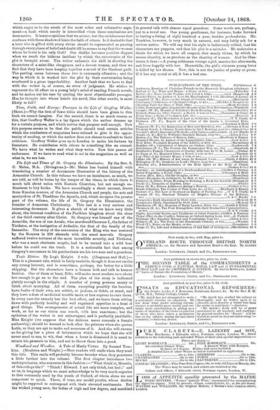In Vain. A Novel. By Heraclitus Grey. 3 vols. (Hurst
and Blackett.)
— It is painful to have to speak of this book as we cannot but think it ought to be spoken of. For, besides being carefully and skilfully written, it has an earnestness about it which claims a certain respect, and it is, doubtless, the result of a sincere impulse in the writer urging him to say what he thinks ought to bo said. But a novel which aims to do for
doubt what "religions" novels aim to do for certain sets of theological opinions, is, in our judgment, a deplorable mistake, and this we take to be the object of In Vain. The radical fault of such a book is that it per- petually assumes, and∎from its form cannot help assuming, conclusions
which ought to be the result of the moat sober and exhaustive argu- ment—a fault which surely is intensified when these conclusions are destructive. It is not scepticism that we accuse, but the recklessness that confuses with these shadowed hints the faith of others. Is it desirable that a hero who is gifted with every virtue should be represented as passing through every phase of belief and doubt till he comes to say that the woman whom he loves is his only God? Our dislike becomes positive disgust when we reach the hideous incident by which the catastrophe of the plot is brought about. The writer exhausts his skill in drawing the characters of a saint-like clergyman and a devout woman, and then we find that they have been keeping together a secret of the blackest guilt. The parting scene between these two is extremely offensive ; and the way in which it is worked into the plot by their conversation being overheard is a gross improbability. Another fault that we have to find with the writer is, of course, an error of judgment. He wishes to represent the ill effect on a young lady's mind of reading French novels, and he makes out his case by quoting the most objectionable passages. Has he thought into whose hands his novel, like other novels, is most likely to fall ?



































 Previous page
Previous page